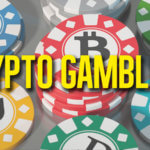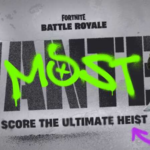Published on: 08/06/2022
Sandbox, Parody Coin, Decentraland to advance NFT industry

As the sale of NFTs increases, the NFT industry continues to grow rapidly. NFTs are a great way to access digital arts and take part in the blockchain world, not to mention that platforms like The Sandbox allow users to make money by playing games (play-to-earn).
The industry, however, is faced with high gas fees and costly flow prices. Parody Coin is a brand new token that claims to be a solution to this problem.
The NFT and metaverse industries will continue to expand as long as people find real-world applications for them. Here are how Sandbox, Parody Coin, and Decentraland innovate within their metaverses.
The Sandbox
The Sandbox is a decentralized game platform based on Ethereum (ETH) that allows players to create digital worlds. It was released in 2017. The platform is extremely adaptable, allowing users to tailor their virtual worlds to their specific needs and preferences. Users can use SAND, the ecosystem’s native token, to purchase virtual plots of NFT-type land.
Users can stake SAND to participate in the metaverse’s DAO governance, interact with user-generated content, and purchase in-game commodities such as avatars and their equipment, in addition to purchasing land.
Users can create 3D games on their plots of land using Game Maker and generate voxels with Voxel Editor. Voxel is the smallest unit of 3D design that can bring things like animals and plants to life.
SAND is among the top cryptocurrencies in the world and The Sandbox is one of the most popular gaming platforms, ranking 39th on CoinMarketCap with a market valuation of over $1 billion.
Parody Coin
Users can mint parodies of popular NFTs at great prices on the Parody Coin’s Parody Market. These parodies can then be sold on NFT marketplaces. These cloned parody NFTs on the market are not separate from the original NFTs they were cloned from.
By locking up or burning the original NFTs, the owners can claim ownership of the parody NFTs through a durable bridge. As a result, it is possible that some of the parody NFTs will eventually replace the original NFTs on the market.
The Parody Coin ecosystem’s native BEP-20 token, PARO, allows users to mint and transfer NFT parodies through wallets on the marketplace.
The PARO token is also used to buy and sell NFT parodies. Additionally, under the token reflection model, 5 percent of the 10 percent transaction tax will be airdropped to token holders. The platform’s Parody Swap allows users to exchange PARO tokens for any coin on any network.
At the moment, Parody Coin is in the second stage of its presale, which is expected to end in mid-July. According to the website, there will be a total supply of 240 billion tokens.
Decentraland
Decentraland is a metaverse project based on the Ethereum blockchain network. It is a virtual reality-focused digital platform where users can buy, lease, or sell virtual land to monetize or build on. MANA is the platform’s native token. The lands are stored on the blockchain network, with coordinates for each plot.
Decentraland has a market worth over $1 billion and is backed by venture capital firms such as ConsenSys and Fenbushi Capital. MANA token holders have a say in how the Decentraland ecosystem works because the platform uses the DAO structure for governance decisions.
-
Gaming // 2022-06-09
Monopolon: New monopoly metaverse game with NFTs



